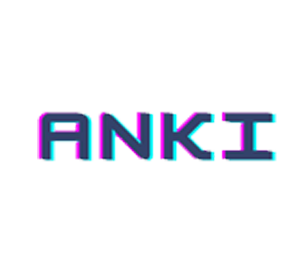Anti-government writings as dark web literature

Throughout history, authoritarian regimes have sought to suppress anti-government speech. From banned pamphlets to underground zines, dissenting voices have always found covert channels. In the digital age, the dark web has become the new frontier for such subversive
literature.
Unlike mainstream social media or blogs, .onion sites offer unparalleled anonymity. Tor’s architecture shields authors from surveillance, making it a refuge for those whose ideas might be silenced elsewhere. Here, anti-government literature thrives—not as isolated rants, but as organized, ideologically driven texts forming a new literary subculture.
Defining Dark Web Literature: Beyond Hacking Guides and Leaks
What Counts as Anti-Government Literature on the Dark Web?
Dark web literature is not limited to technical manuals or whistleblower dumps. It
encompasses:
- Manifestos advocating systemic overthrow
- Philosophical essays critiquing state power
- Practical guides for digital resistance and civil disobedience
- Personal accounts of state oppression censored on the clearnet
Unlike academic critiques, these writings aim for direct action, often blending theory with praxis.
Common Themes in Anti-Government Writings
Across different .onion forums and repositories, recurring themes include:
- Decentralization as an antidote to authoritarianism
- Cryptography as a political weapon
- The moral illegitimacy of taxation and surveillance
- Agorism and counter-economics as revolutionary strategies
These texts do not merely complain—they propose alternatives, reflecting the dark web’s
ethos of self-reliance and autonomy.
Platforms and Repositories: Where This Literature Lives
Iconic .onion Libraries and Archives
Several darknet libraries have gained notoriety for hosting anti-government texts:
- The Imperial Library of Trantor (ILOT) – A repository of banned books, radical essays, and political theory.
- Deep Library – Focused on anarchist and libertarian literature, including rare translations.
- Mirror sites of WikiLeaks and Cryptome – Providing access to leaked documents with geopolitical implications.
These platforms serve as digital equivalents of samizdat, preserving texts that mainstream
publishers avoid.
Forums and Boards as Publishing Platforms
Beyond libraries, darknet forums act as dynamic platforms for anti-government discourse:
- Dread – Known primarily for marketplace discussions, it also hosts political subforums.
- The Hub – A historical forum where ideological debates on governance, privacy, and resistance strategies took place.
Here, new manifestos are often shared in serialized formats, inviting communal critique and
contribution.
Influential Writings and Their Impact
The Crypto-Anarchist Manifesto (1992) – A Foundational Text
Though predating the dark web, Timothy C. May’s Crypto-Anarchist Manifesto is seminal
within darknet circles. Its advocacy for cryptography as a tool to circumvent state control
resonates deeply:
- It envisioned markets, communication, and currencies immune to government interference.
- Many darknet actors view their activities as direct continuations of May’s vision.
The manifesto’s ethos permeates countless darknet publications, often quoted verbatim in
forums and newer manifestos.
Modern Darknet Manifestos
In the 2010s and beyond, several anonymous manifestos emerged exclusively on the dark
web:
- “Sovereign Identity Through Obfuscation” – A guide to creating untraceable digital identities for political activism.
- “The Stateless Society: A Pragmatic Blueprint” – Detailing how to operate entirely outside legal jurisdictions using darknet tools.
- “Surveillance Capitalism and the New Feudalism” – Critiquing not just governments, but corporate data monopolies as complicit in oppression.
These texts often spark discussions leading to real-world tools—privacy-focused apps,
secure communication protocols, and alternative economic models.
The Role of Anonymity: Shielding the Author, Empowering the Reader
Safety Through Obscurity
For authors of anti-government literature, anonymity is not just a preference—it is a
necessity:
- Publishing on clearnet platforms risks legal prosecution, doxxing, or violent retaliation.
- The dark web’s layered encryption ensures plausible deniability and operational security.
This security fosters a candidness rarely seen in mainstream discourse, allowing radical
ideas to flourish without immediate personal risk.
Reader Anonymity Fuels Open Discourse
On the reader’s side, the anonymity of Tor encourages engagement:
- Individuals can explore subversive ideas without surveillance or social stigma.
- This leads to vibrant, honest discussions often absent in public forums.
The result is a feedback loop: the more secure the platform, the more radical and in-depth
the discourse becomes.
Anti-Government Literature as a Digital Counterculture
A Fusion of Hacker Ethos and Political Theory
Dark web literature is deeply intertwined with hacker culture. Both share a disdain for
authority and a preference for self-empowerment through knowledge:
- Technical guides often double as political statements.
- Anarchist essays incorporate lessons from cybersecurity and cryptography.
This synthesis creates a unique literary genre—half manifesto, half technical
manual—serving both ideological and practical purposes.
From Theory to Praxis: Influence on Movements
Though underground, these writings have real-world effects:
- They inspire activists in authoritarian countries to adopt darknet tools.
- Hacktivist collectives like Anonymous draw ideological fuel from such literature.
- Even mainstream discussions on digital rights echo ideas first published in darknet manifestos.
Thus, while hidden, anti-government literature on the dark web shapes broader
conversations about power, privacy, and resistance.

